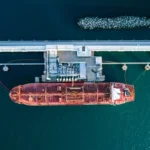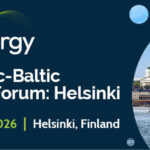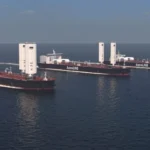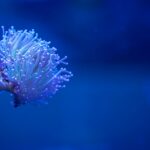The MARPOWER project kicks off seeking to decarbonize maritime transport using net-zero fuels

- Supported by European Union funding, the initiative focuses on developing a gas-turbine based energy conversion system for electricity generation and cogeneration on board marine
vessels. - A digital twin will be created to enable the running of process simulations and the modelling of the energy and emissions performance of the gas turbine system on board the vessel during both port and sea operations.
Eleven European entities specializing in turbomachinery, new fuels and combustion, energy conversion systems, gas turbines, bearing systems, heat recovery, digital twins, shipbuilding, and project consulting have united in the European project MARPOWER (acronym for Efficient zero-emissions gas turbine POWER system for MARitime transport). Their goal is to replace the use of fossil fuels in the maritime sector, reduce emissions, marine pollution, and ultimately help combat the degradation of oceans and coastal areas.
According to the 2023 edition of the “Review of Maritime Transport” report published by the United Nations Conference on Trade and Development, CO2 emissions from maritime transport contribute to approximately 3% of global human-caused emissions. Greenhouse gas emissions from this sector are expected to continue rising in the coming years, making emission reduction a priority for both the United Nations and its specialized agency, the International Maritime Organization.
The MARPOWER project aims to advance the decarbonization of maritime transport by developing a novel flexible energy conversion system. This system is designed to be capable of using a wide range of sustainable fuels (such as green methane and green methanol, hydrogen and ammonia), with no or minor need for modification of the combustion system.
A key priority for the project is to ensure that the system remains both technically and economically competitive, thus facilitating its integration into existing ships. “This is particularly important given the long lifespan of ships and the often complex and expensive process of incorporating new technologies,” notes Jussi Sopanen, Professor of Mechanical Engineering at LUT University and
coordinator of the initiative.
The project will involve the development of a gas turbine combustor specifically designed for alternative fuels, and an active magnetic bearing (AMB) system supported two-shaft gas turbine with a bottoming cycle designed to maximize both the performance and efficiency of power generation and use on board the ship.
Prototypes and a Digital Twin to improve and assess energy efficiency on ships
The integration and validation of the entire system’s performance will be executed using a Digital Twin model. The Digital Twin will create a virtual replica of the gasturbine based energy conversion system and its components and will enable simulation and analysis of the energy conversion processes and power supply on cargo and cruise ships, for both electric ship propulsion and cogeneration applications.
Additionally, prototypes of critical system components, including the combustion chamber, high-pressure shaft system, and the recuperator, will be developed and tested for system design optimization. A moving platform will also be designed and constructed to replicate the ship movements during testing of the AMB system.
Coordinated by LUT University, the MARPOWER project features a highly multidisciplinary consortium, comprising 11 entities from 6 different countries: LUT University, Aurelia Turbines and Alfa Laval Aalborg from Finland; Politecnico di Milano; Rina Consulting and Rina Services from Italy; University of Vigo and Zabala Innovation from Spain, the German Aerospace Center (DLR) from Germany; the Technical University of Denmark (DTU) from Denmark; and Chantiers de L’Atlantique from France.
The MARPOWER project has been funded by the European Union with nearly 8 million euros and will run for 48 months. The project kicked off this September at LUT University in Finland, where the consortium held its initial meeting to lay the groundwork for the first months of work.
Contact
• Project Coordinator: Julia Vauterin (julia.vauterin@lut.fi)
• Press: Mariano Echávarri (mechavarri@zabala.es) and Blanca Del Guayo (bdelguayo@zabala.es)

















